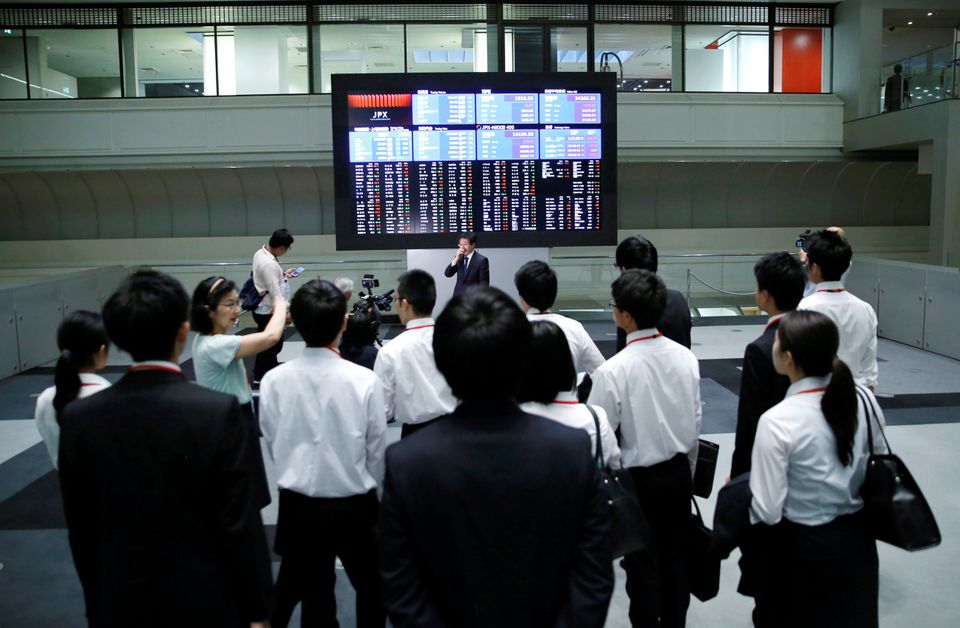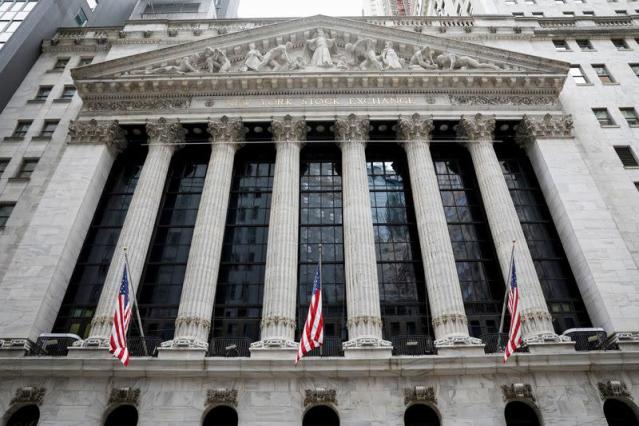WORLDWIDE: HEADLINES
N. Korea’s economy shrank most in 23 years amid COVID-19, sanctions – S.Korea c.bank

North Korea’s economy suffered its biggest contraction in 23 years in 2020 as it was battered by continued U.N. sanctions, COVID-19 lockdown measures and bad weather, South Korea’s central bank said on Friday.
Gross domestic product (GDP) in the isolated economy contracted 4.5% last year in real terms, the Bank of Korea (BOK) said on Friday, the worst since 1997 and reversing a 0.4% growth in 2019, the first expansion in three years.
“Along with the continued intense U.N. sanctions, North Korea’s lockdown measures to fight the coronavirus pandemic … and worsened weather conditions such as heavy rains and typhoons were the main drivers to the contraction,” a BOK official told reporters.
“North Korea’s COVID-19 measures included border blockades, 30-day quarantine for those who showed (COVID-19) symptoms, a ban on domestic travels and restriction on entry to Pyongyang,” the official said, adding that these moves greatly impacted the manufacturing industry and the services sector.
Estimates for North Korean economic data by the BOK are considered the most reliable as the isolated nation does not disclose any statistics on its economy.
Full coverage: REUTERS
Japan’s output, job availability jump but COVID curbs to slow growth

Japan’s factory output jumped in June and job availability rose to the highest level in nearly a year, data showed, a sign robust overseas demand was offsetting the drag to consumption from the coronavirus pandemic.
But a spike in domestic infections to new records and a lingering global chip shortage add to woes for the world’s third largest-economy, dashing policymakers’ hopes for a strong rebound in July-September growth, analysts say.
The government is set to expand state of emergency curbs to more parts of the country through Aug. 31, overshadowing the Olympic Games held in capital city Tokyo.
“With the resurgence in infections, initial hopes of a clear economic rebound in July-September have faded,” said Yoshiki Shinke, chief economist at Dai-ichi Life Research Institute.
“The economy will probably stagnate in the current quarter with any recovery pushed back until October-December onward.”
Full Coverage: REUTERS
WORLDWIDE: FINANCE / MARKETS
Asian shares down, set for worst month since March 2020

Asian shares slipped on Friday, with a gauge of regional equities set for its biggest monthly drop since the height of global pandemic lockdowns last March, while the dollar lagged near one-month lows on expectations of continued Fed stimulus.
But the stock market losses were moderate compared with sharp falls earlier in the week that had been sparked by investor fears over the impact of regulatory actions in China against the education, property and tech sectors.
Reassurances from Chinese regulators and official media have helped to soothe investors’ nerves, as have statements from the US Federal Reserve that its bond-buying program will remain unchanged for now. The US posted strong second-quarter growth helped by rising vaccinations and government aid, but the expansion fell short of expectations.
Robust U.S. earnings and forecasts also helped to lift Wall Street to record intraday highs on Thursday.
On Friday, MSCI’s broadest index of Asia-Pacific shares outside Japan (.MIAPJ0000PUS) fell 0.84%, taking its losses for the week to more than 6.5%. Japan’s Nikkei (.N225) dipped 1.71%, set for an 11th straight month of falls on the last trading day in the month.
Chinese blue-chips (.CSI300) fell 0.96%, and Hong Kong’s Hang Seng (.HSI) fell 1.27%, with tech stocks once again dragging. The Hang Seng Tech index (.HSTECH) deepened its losses for the week to more than 17%. Seoul’s Kospi (.KS11) was last down 0.94% on the day.
“It’s clear investors are very rattled by the regulatory crackdown,” said Michael Frazis, portfolio manager at Frazis Capital Partners in Sydney, adding that the market continues to face other near-term pressure.
Full coverage: REUTERS
Oil falls but heads for strong weekly gain on demand growth

Oil prices fell on Friday but were on track to post solid gains for the week with demand growing faster than supply, while vaccinations dampen the impact of a resurgence in coronavirus cases worldwide.
Brent crude futures fell 40 cents, or 0.5%, to $75.65 a barrel by 0151 GMT, following a 1.75% jump on Thursday. U.S. West Texas Intermediate (WTI) crude futures fell 38 cents, or 0.5%, to $73.24 a barrel, whittling down a 1.7% rise from Thursday.
Both benchmark contracts were headed for gains of around 2% for the week, buoyed by indications of tight crude supplies and strong demand in the United States, the world’s biggest oil consumer.
“We’ve got stronger prices for a bit longer now, because it’s a fundamental supply-demand issue in terms of the recovery in demand we’re seeing in places like the United States,” said Justin Smirk, senior economist at Westpac.
Full coverage: REUTERS
Wall Street roars to record peak on rosy earnings, dollar wilts

US shares bounded to record highs on Thursday helped by strong company earnings and solid economic growth data, though the Federal Reserve’s message earlier this week that it is in no hurry to taper stimulus pinned the dollar at a one-month low.
Following a spate of strong corporate earnings reports from Ford Motor Co (F.N) to KFC owner Yum Brands Inc (YUM.N) overnight, investors were further cheered by data showing the U.S. economy grew at a solid annualized pace of 6.5% in the second quarter.
“Today is a follow-on from really good earnings last night, which is great news,” said Tim Ghriskey, chief investment strategist at Inverness Counsel in New York, which manages $4 billion in assets. “The expectation is that we will continue to see good earnings.”
The volley of positive news boosted the Dow Jones Industrial Average (.DJI) to a record high of 35,171.52 points before closing up 0.4%. The S&P 500 (.SPX) also jumped to an all-time high of 4,429.97 points before finishing 0.4% higher, while the Nasdaq Composite (.IXIC) added 0.3%.
Equity markets elsewhere were also buoyant as investors digested news of bumper financial earnings in Europe, while reports that Chinese regulators had called banks overnight to soothe concerns about a widening regulatory crackdown further brightened the mood.
The pan-European STOXX 600 index (.STOXX) climbed 0.46%, having also hit a record high of 464.31 points earlier, and MSCI’s gauge of stocks across the globe (.MIWD00000PUS) gained 0.9%.
Full coverage: REUTERS


 Home
Home